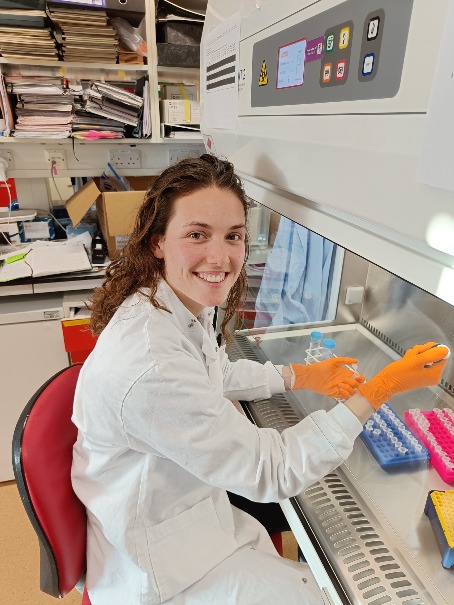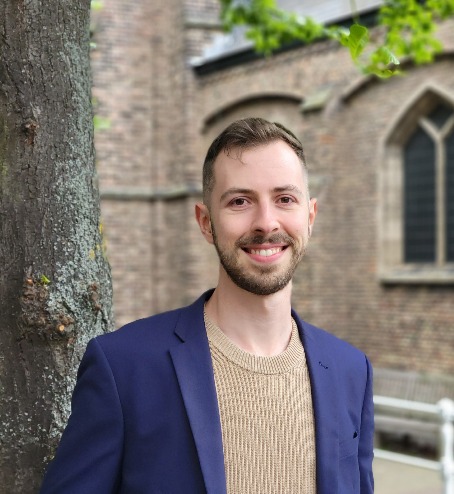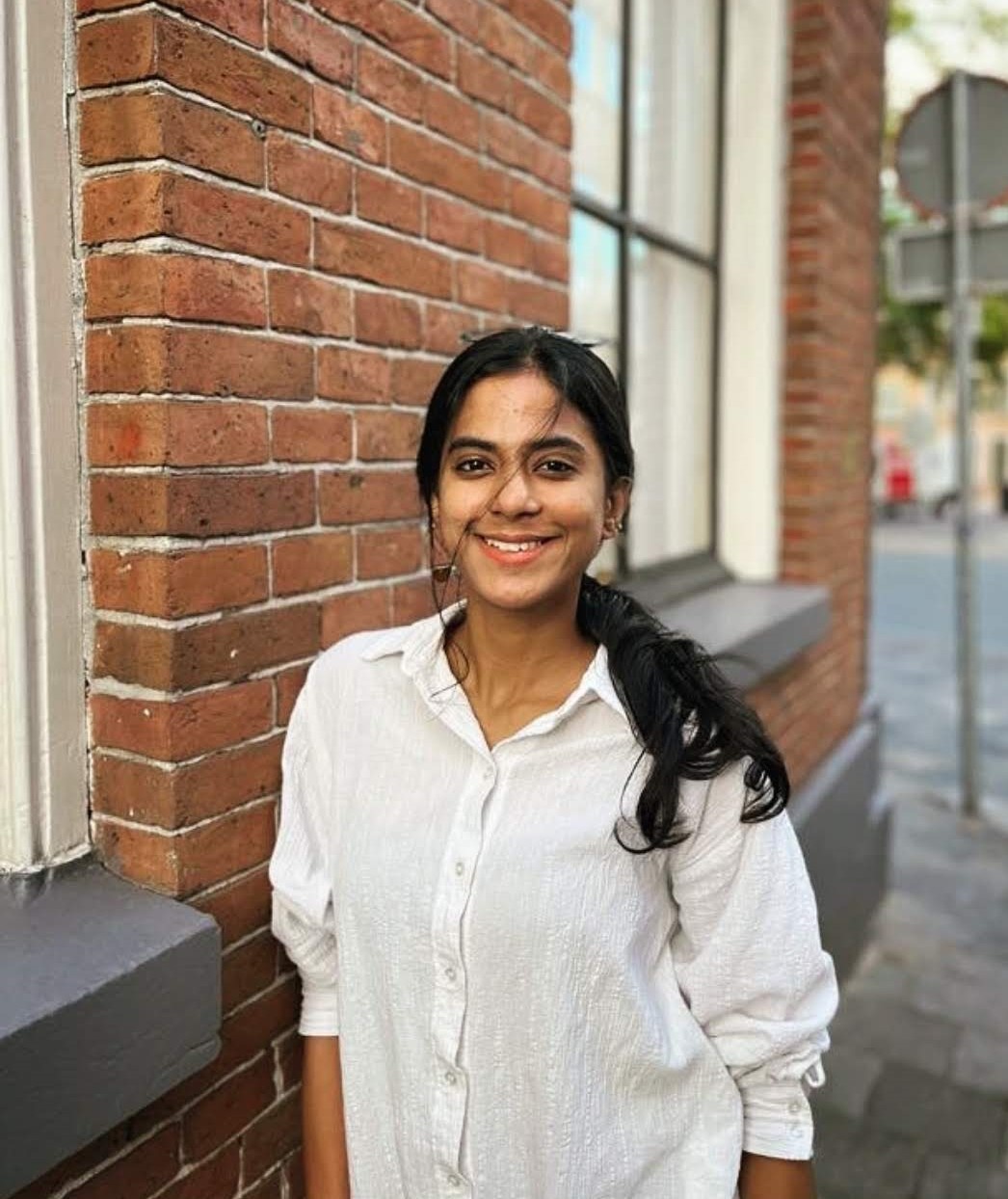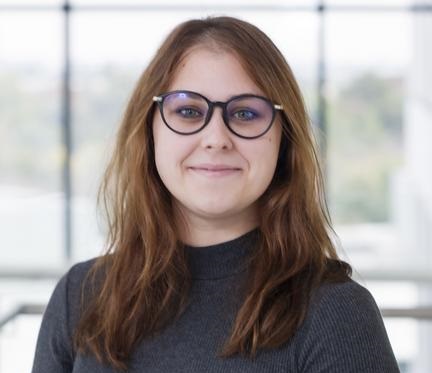
How are new and innovative drugs and therapies developed? How can research help us find ways to prevent, treat and manage diseases? Can we harness the power of the immune system for disease treatment?
Study MMIT and be part of the next generation of successful scientists, joining a community dedicated to advancing medical knowledge and making a meaningful impact on the future of healthcare!
The MSc Molecular Medicine and Innovative Treatment (MMIT) is a two-year selective programme designed to educate motivated students through a challenging and high-quality multidisciplinary curriculum. Whether you aspire to work in or outside academia, we will prepare you for a successful career in (bio)medical and pharmaceutical sciences. The programme is unique in that all the courses focus on how to become a successful independent researcher. Right from the start, you will learn to become a critical evaluator of current research, develop your own ideas, and define the kind of researcher you want to become.
MMIT offers a rare advantage by integrating clinical, medical, and pharmaceutical aspects. It covers a wide range of exciting topics in molecular and translational medical research such as Immunology and infectious diseases, drug innovation and development, neurobiology and neurodegenerative diseases, cancer biology and immune therapy, cardiovascular diseases, and bioinformatic and system medicine.
Do you want to become an entrepreneur, start your own company to advance the research idea or medical device that you designed during your Bachelor or Master project? The Innovative Medicine track track offers training for students to patent a research idea, write and pitch a business plan and finally bring it to the market.
The MSc Molecular Medicine and Innovative Treatment is housed at the University Medical Center Groningen (UMCG) and the Department of Pharmacy, and coordinated by the Graduate School of Medical Sciences (GSMS). Therefore, as an MMIT student, you will have access to state-of-the-art facilities for (pharmacy)genomics, proteomics, and in vivo and in vitro imaging.
Throughout the MSc Molecular Medicine and Innovative Treatment programme, we put a strong emphasis on interactive learning, fostering small-group discussions and collaborations, and acquiring transferable skills such as critical thinking, communication, problem-solving, etc. Your personal and professional development is our main focus.
Whether your interest lies in brain research, genetics, epigenetics, nanomedicine, microbiology, personalized medicine, or any other topic within (bio)medical and pharmaceutical sciences, as an MMIT student, you have the opportunity to tailor your studies to your specific interests and ambitions. After the first semester, you can also choose to specialize (or not!) in one of the following areas:
With the learning-by-doing principle at the core of our programme, you will have frequent interactions with our team of dedicated researchers and supervisors. This hands-on approach will provide you with practical experiences, creating an optimal learning environment and allowing you to quickly acquire new knowledge and skills.
To gain even more hands-on experience you will have the opportunity to complete two research internships, also called research projects, either at the University Medical Center Groningen (UMCG), within the Netherlands, or abroad in the country of your choice or within our extensive international network spanning across Europe, Latin America, and Asia.
If you are seeking to make a difference in the field of modern medicine then MMIT is the ideal choice for you! Read on below for more information on the unique features of MMIT, the courses offered, the entry requirements, and the job prospects.
Contact us at mmit umcg.nl or via WhatsApp for any questions.
For news and updates on MMIT follow us on Instagram & LinkedIn.

Tell us a bit about you
Hi! My name is Noortje and I am a recent graduate from the MMIT programme. I obtained my bachelor’s degree in Biology, majoring in Biomedical Sciences, here in Groningen. Groningen is the definition of a student city and as a result, there are loads of exciting opportunities to keep you busy. During my studies, I joined several committees at different student associations and became a competitive rower.
During the MMIT programme I was able to further explore this interest in various fields of biomedical research. I decided to continue with the oncology track and used my first research project to study the molecular mechanisms underlying acute myeloid leukemia. In my second year, I wanted to know more about gene regulation - as this is often disturbed in cancer - and was able to find an internship position at the University of Oxford in a lab that studied gene regulatory mechanisms. Specifically, I studied how the spatial organization of the chromatin affects gene expression.
Your proudest achievement during MMIT?
I was most proud of getting offered an internship position at the University of Oxford. I always wanted to do an internship abroad, but I would never have thought that Oxford was one of the possibilities. Working alongside the best scientists in the world was truly inspiring and an experience I will benefit from forever. Receiving the GUF-100 prize for best student of the Faculty of Medical Sciences was icing on the cake.
Your preferred aspect(s) of the MMIT programme?
I particularly liked the small group teaching and network that comes with it. You will have a lot of personal contact with teachers/professors so you can ask all the questions you want. Another aspect that is worth mentioning is the MMIT office, which is always willing to help with any issues that you encounter during your studies!
During course assignments you will usually receive personal guidance or feedback from (assistant) professors. I find this very valuable as you can learn a lot from interacting with professors. Like their perspectives on certain research topics, how the academic world is structured, how they think, or how they present and discuss their data. This will be very useful regardless of what kind of career you want to pursue.
How has MMIT prepared you for your career?
The MMIT programme has been instrumental for me in developing my research skills. During my first research project, I was very inexperienced and therefore often insecure about my research skills. However, in research, it is learning by doing, and therefore your learning curve is very steep. During my second research project in Oxford, I already felt much more confident and I got a lot of freedom to plan my own experiments and manage not one, but two, research projects.
MMIT prepared me for my future career mainly by letting me gain research experience. Not just by learning new lab techniques (I will probably not even use them anymore in the future) but more so by learning about science in general. Learning how to read the literature, how to critically evaluate research, how to plan a research project, how to interact with scientists and physicians, and how to write down and present your findings. These skills and experiences are fundamental for any career related to science – in academia and beyond.
Any tips for future MMIT students?
A useful strategy that has helped me throughout my entire study is networking! Don’t be afraid to email people who might be of interest to you or could help you find what you need - like an internship position. I once emailed a professor in my field of interest to ask for international contacts for an internship and she very quickly agreed to have a meeting to discuss my interests. Afterwards, she provided me with a whole list of people I could contact.
The MMIT programme is challenging but not outrageous. In general, I managed to complete all my coursework within 40 hours per week. What I very much appreciated was the fact that our deadlines were always on Fridays, so you can relax during the weekend. During the research projects (internships) you have a lot of freedom to plan your own agenda and decide how much time you want to spend on your project.
Noortje Van Dijk, MMIT Alumna, graduated in 2023

Tell us a bit about you
I'm Marcel Vieira-Lara, originally from São Paulo, Brazil. I hold a BSc in Molecular Sciences from São Paulo and pursued further studies in the Netherlands, obtaining an MSc in MMIT and a PhD in Systems Biology and Energy Metabolism in Groningen. After a postdoc in Biotechnology in Delft, I now serve as an Assistant Professor at TU Delft.
Beyond academia, my interests span nature, languages, cultures, sustainability, piano, and psychology to name a few. A fun fact: I grew up in the Brazilian countryside surrounded not only by cats and dogs but also by chickens and a rescued native terrestrial bird!
How did the MMI programme support your personal and professional growth?
By constantly challenging us with assignments outside of our (or at least mine!) comfort zone. A few examples were: (1) writing a literature review in a short period of time on a topic that time unknown to me, (2) writing, presenting and defending a PhD project in front of a reviewer committee. These were very powerful experiences with a steep learning curve that prepared me for the challenges that I encountered ahead. Another point worth mentioning is the Dutch directness. The feedback received was always straight to the point, which made it very valuable in terms of professional and personal development.
The MSc programme focuses on teamwork and team-building from day one. We had the opportunity to work side-by-side with colleagues coming from different corners of the globe, which made it a very enriching experience.
I have always been passionate about metabolism. I then pursued two internships in this field, where I had contact with techniques ranging from cell culture, gene editing and mass-spectrometry to computational modelling of pathways. Those practical skills were fundamental in my development as a researcher, both during my PhD as well as in my current career.
Tell us about the two research projects (internships) you did during the programme
In the MMIT programme we have the opportunity to conduct two research projects. During the first year of the programme, we attended seminars led by professors from various labs and departments within the UMCG. One of these seminars, presented by Prof. Barbara Bakker, caught my attention due to the quantitative reasoning on metabolic pathways. After getting in touch with her, I decided to conduct my first research in her group.
In this internship, I generated an in vitro model of medium-chain acyl-CoA dehydrogenase deficiency (a metabolic disease). I also contributed to the development of a computational model of the defective pathway in the liver, focusing on the metabolite coenzyme A. Such a combination of wet lab and modelling work served as a basis for a better understanding of underlying mechanisms and possible treatments for the disease. During this internship, I had the opportunity to collaborate with different groups within the UMCG. My thesis was entitled Coenzyme A Depletion in an inborn Fatty-Acid Oxidation Disorder.
Barbara assisted me in finding a supervisor for my second research internship, which I conducted at the University of Melbourne, Australia. The research focused on the crosstalk between a reserve carbohydrate and the pentose phosphate pathway in Leishmania, a pathogen that causes the neglected tropical disease leishmaniasis.
Where are you now?
After completing the MPDI programme, I pursued a PhD in Prof. Barbara Bakker's group, followed by a postdoc under the supervision of Prof. Jack Pronk at the Department of Biotechnology of TU Delft. In June 2023, I began my journey as an Assistant Professor in the same department. Currently, I am in the process of establishing my own research group, marking an incredibly exciting moment in my career.
In my case, I have always been drawn to an academic career, but many of my peers have pursued paths in industry. When I started the MPDI programme, I had no idea that I would be where I am today, roughly 8 years later. The programme has undeniably provided me with numerous opportunities for both professional and personal growth.
Marcel Vieira-Lara, Assistant Professor at Delft University of Technology (TU Delft), MMIT Alumnus, graduated in 2017

I have always believed the right education will give immense confidence and belief in oneself. The MMIT master programme has been that for me. I was able to pursue specific topics and had the opportunity to specialize in one of my interests later during the programme.
My time during the research projects was highly rewarding. Writing research proposals, working independently, presenting to the team, and brainstorming new ideas laid the fundamentals for a career in science.
Apart from science and academics, the self-development sessions with my mentor are something that I will cherish. They helped me introspect myself and set realistic goals. I became aware not only of my strengths but also of the places that I must work on to build myself. I learnt to trust my intuitions, believe in my abilities and constantly work on myself from the feedback I receive. This has shaped me and given me the preparedness to face the world.
Last but not least, the MMIT office is a wonderful team of women who are always around when you need them. Moving to another country to pursue a master's during the pandemic was a challenging experience for me, but the MMIT office made things smooth and always looked out for their students which I’m grateful for!
If you are someone who is interested in research, loves science, and wants to set foot into the research world, this master's is for you! MMIT guides you, moulds you and helps you to comfortably take your place in the world of research!
Anjana Sridharan, MMIT Alumna, graduated in 2019

After completing my bachelor's degree in biomedical sciences, I was unsure which specific path I want to follow. Luckily, MMIT offers six specializations, which are thoroughly presented at the beginning of the programme. Having heard from top-of-the-field researchers leading these specializations, I chose to follow the Oncology track.
After completing my bachelor's degree in biomedical sciences, I was unsure which specific path I wanted to follow. Luckily, MMIT offers six specializations, which are thoroughly presented at the beginning of the programme. Having heard from top-of-the-field researchers leading these specializations, I chose to follow the Oncology track.
During this track, I had the opportunity to expand my theoretical knowledge and learn about the latest research in the field, as well as participate in Oncology-related research myself. During this 6-month internship, I had the opportunity to work alongside and be introduced to the world of (oncology) research by inspiring (early-career) scientists at the UMCG. I believe this has strongly paved my way to pursuing a PhD degree in Medicine, which I am currently focusing on.
All in all, if given the chance, I would definitely choose the MMIT programme over and over again!
On top of all the transferable skills and experience I have gained at the UG/UMCG, I made a lot of good friends from all over the world, due to the multicultural environment in the MMIT programme.
Theodora Grosu, MMIT Alumna, Graduated in 2022